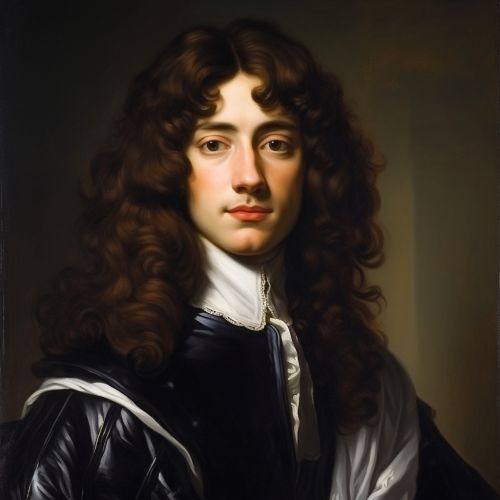Christiaan Huygens
Early Life and Education
Christiaan Huygens was born on 14 April 1629 in The Hague, Dutch Republic, to a wealthy and influential family. His father, Constantijn Huygens, was a diplomat and advisor to the House of Orange, and also a poet and musician. His mother, Suzanna van Baerle, died shortly after his birth. Huygens was the second of five children, all of whom would go on to achieve prominence in their respective fields.
Huygens received a comprehensive education at home until he was sixteen, studying Latin, Greek, mathematics, history, music, and law. He then attended the University of Leiden, where he studied mathematics and law. He later studied at the College of Orange in Breda, a new institution intended to train engineers and officers for the Dutch army and navy.


Career and Contributions to Science
In 1655, Huygens made his first major scientific discovery: the ring of Saturn. Using a telescope of his own design, he was able to discern that the "appendages" observed by Galileo in 1610 were a ring encircling the planet. This discovery established him as Europe's leading astronomer.
In the same year, Huygens discovered Titan, Saturn's largest moon. This was a significant achievement, as it was only the second moon ever discovered (after Jupiter's four Galilean moons).
Huygens also made significant contributions to the field of optics. He is best known for his wave theory of light, which he presented in 1678. This theory, which proposed that light was made up of waves rather than particles, was a radical departure from the prevailing particle or corpuscular theory of light proposed by Isaac Newton. Huygens' wave theory of light was initially rejected by the scientific community, but was later confirmed and is now considered one of the fundamental principles of modern physics.
In addition to his work in astronomy and optics, Huygens also made significant contributions to the field of horology. In 1656, he invented the pendulum clock, which was the most accurate timekeeping device of its era. This invention had a profound impact on navigation, as it allowed for the accurate determination of longitude at sea.
Later Life and Death
In his later years, Huygens continued to contribute to various fields of science. He worked on a variety of projects, including the study of the shapes of celestial bodies, the nature of gravity, and the properties of light. He also continued to improve his telescopes and clocks.
Huygens never married or had children. He died in The Hague on 8 July 1695, at the age of 66. He was buried in the Grote Kerk in The Hague.
Legacy
Huygens' contributions to science have had a lasting impact. His wave theory of light, in particular, has been fundamental to the development of modern physics. His invention of the pendulum clock revolutionized timekeeping and had a profound impact on navigation.
Huygens' work has been recognized with numerous honors. The Huygens crater on Mars, the Huygens probe that landed on Titan in 2005, and the asteroid 2801 Huygens are all named in his honor. Additionally, the Huygens Medal, awarded by the Royal Netherlands Academy of Arts and Sciences for achievements in the natural sciences, is named in his honor.
